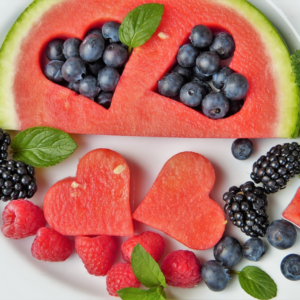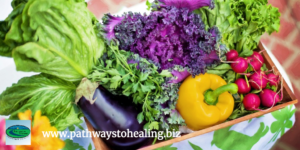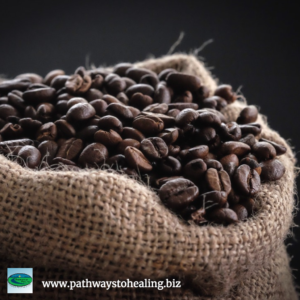Dr. Alyssa Musgrove
Spending hard-earned money on groceries that never actually reach your plate is like throwing away cash. Because most of us do not have the time to visit grocery stores or farmers markets daily to get fresh produce, we tend to buy produce all at once, which can lead to early spoiling if we don’t utilize proper storage techniques. For example, refrigeration causes some foods to spoil faster. Other types of produce should be ripened at room temperature to reach their best taste potential. What follows are some helpful guidelines for keeping your food fresher, longer, as well as tips and tricks to enjoy maximum flavor.
Fruits
- For gradual ripening, keep fruits separated. Fruits release ethylene gases during the ripening process, which can cause other produce to ripen more rapidly.
- The following fruits are best ripened on the counter first, then refrigerated: kiwi, nectarine, peach, pear, and
 plum.
plum. - Storing bananas in the refrigerator can disrupt the ripening process. Once refrigerated, a banana may never be able to resume the ripening process if returned to room temperature. If your bananas are turning bad, cut up, freeze and use in smoothies or for banana bread.
- Refrigeration shuts down the ripening enzymes in avocados, so unless you want to stop the ripening process, keep avocados on the counter.
- To ripen avocados quickly, put the un-ripened avocado in a brown paper bag. Be sure to fold the top over to close the bag, and then check the bag daily to remove ripened ones. This ripening trick also works for tomatoes.
- Apples lose flavor and texture when refrigerated, so if you prefer eating apples cold, place them in the fridge 30 minutes before eating.
- Avoid washing berries until right before you eat them, as wetness encourages mold growth. Berries can be refrigerated in a drawer uncovered or in a vented container.
- To keep your pineapple longer, cut the leafy top off and store the pineapple upside down. This also helps redistribute sugars that sink to the bottom during shipping and transport.
- Lemons can be stored in a bowl full of water in the fridge in order to get the longest shelf life.
- Winter squash, butternut squash, acorn squash, and pumpkins should all be stored at room temperature.
- When exposed to cold temperatures, the starch in sweet potatoes turns to sugar, disrupting their flavor and texture – and increasing their overall sugar content. Store sweet potatoes, yams, and regular potatoes in a cool dark area of the kitchen or pantry for the longest shelf life, up to 2 months in a paper bag!
- Tomatoes lose flavor and become mushy when refrigerated. Spread them out on the counter, out of direct sunlight for even ripening, as well as better taste and texture.
- To get the longest shelf life for onions, place them in a paper bag, and store them in a cool, dark cabinet.
- Garlic will last up to 4 months if stored away from heat and light. The pantry is a great location.
- Ideally, leafy greens should be consumed within 1 to 2 days of purchase to ensure you are getting the most nutrients. You can extend the shelf life by wrapping unwashed leaves in a paper towel. (The towel will absorb any excess moisture and prevent soggy rotten leaves.) After wrapping the unwashed greens in a paper towel, put them in a plastic bag and store them in your fridge.
- Asparagus should be stored upright in the refrigerator with a damp towel wrapped around the base or upright in a cup with the stems in an inch of water.
- Celery should be kept in the front of the refrigerator where it is less likely to freeze. Or you can cut celery and submerge in a tall cup of water.
- Coffee is best stored at room temperature in order to allow the natural oils of the coffee bean to activate its powerful aromatic scent. Be aware that coffee can also absorb odors from other foods in your fridge or freezer.
- Wrap rosemary, thyme, parsley, and cilantro in a moist paper towel, place in air-tight containers and refrigerate for up to ten days.
- Basil is best kept on the countertop with the stems in water and the top lightly covered with plastic.
Finally, remove pesticide residue from your produce by mixing one tablespoon of apple cider vinegar to one cup of water, and soak desired fruit or vegetable. Stir periodically for five minutes before draining, rinsing, and using.
These storage tips will help keep your fruit and vegetable purchases fresher longer so you get your money’s worth.
Pathways to Healing specializes in holistic chiropractic care. Dr. Alyssa Musgrove draws on a variety of techniques, including chiropractic, kinesiology, nutrition, food allergy testing and lifestyle counseling to assist clients in achieving optimal health and wellness in one setting. In addition, the practice is committed to being a valuable source of information so that people can learn how to live a healthy lifestyle and prevent future illness. Pathways to Healing is located at 1022 Founders Row, Lake Oconee Village, Greensboro. The office can be reached at 706-454-2040.


